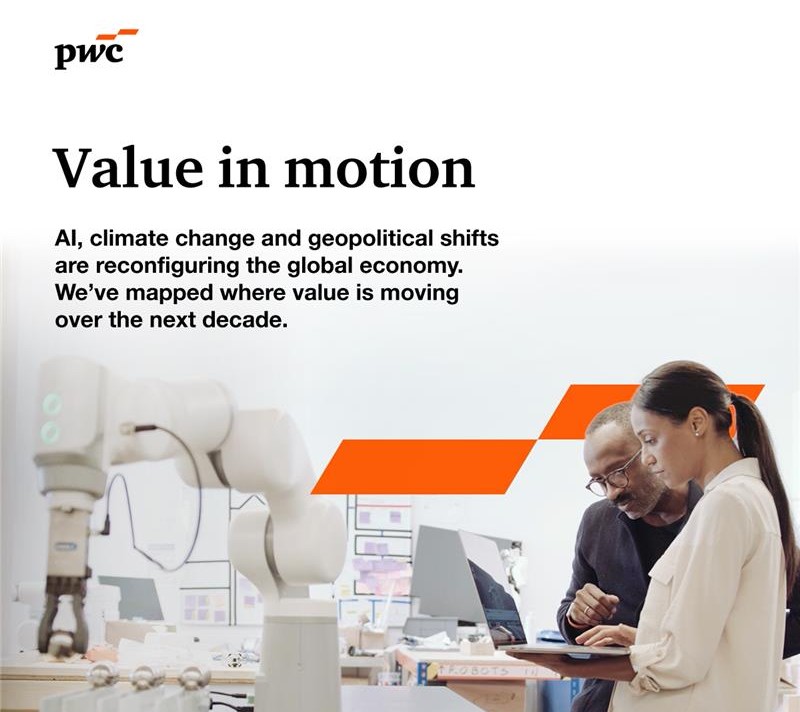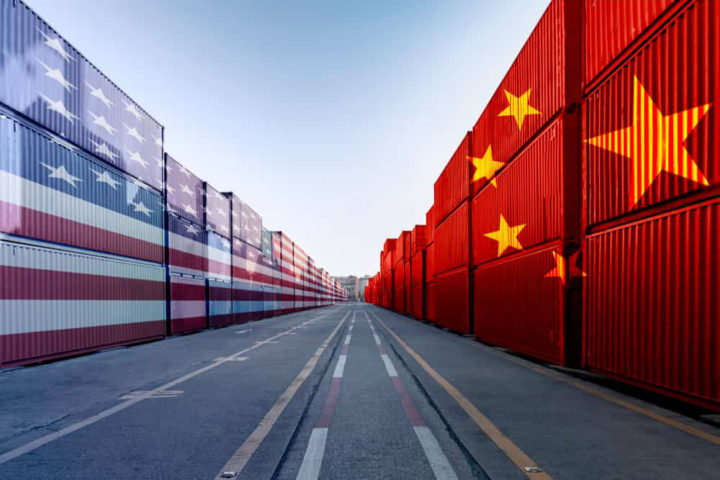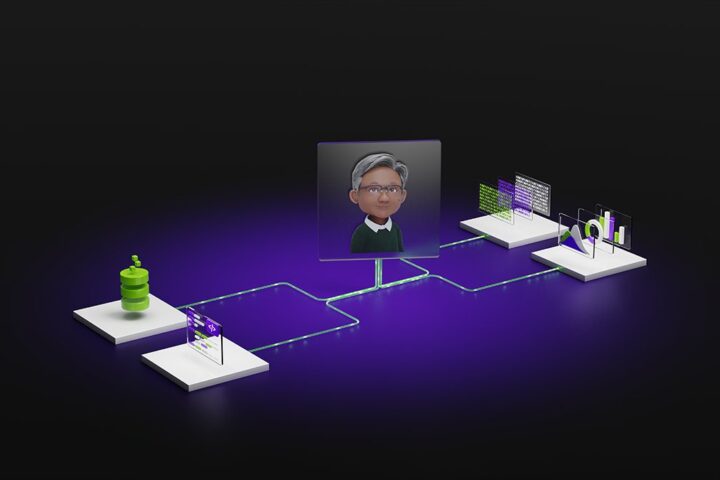The technological transformation of industries and adoption of artificial intelligence by businesses could boost global growth at a rate of one percentage point a year by 2035, according to new research by advisory PwC.
The new study suggests that AI has the potential to boost global economic output by up to 15 percentage points over the next decade, on par with the growth rate the world saw with 19th century industrialisation.
The PwC report, Value in Motion, reveals that the global growth dividend from AI is not guaranteed and depends on more than just technical success. It also hinges on responsible deployment, clear governance and public and organisational trust.
“As the structure of the economy transforms, value will increasingly come from organisations that can connect the dots across traditional industry boundaries,” said Mohamed Kande, PwC’s Global Chairman.
“By focusing on evolving customer needs and using technology to dramatically change the way business operates, business leaders can unlock a step change in growth.”
In other scenarios analysed by PwC, including lower trust and co-operation, the incremental boost to the economy from AI would be more muted at 8%, or in a pessimistic scenario just 1%.
The report indicates that the pressure for businesses to reinvent themselves is at the highest levels of the past 25 years across 17 of 22 global sectors, with $7.1 trln in revenues set to shift between companies in 2025 alone, even prior to the recent increase in tariffs.
Over the next decade, industries are expected to reconfigure to meet human needs in new ways, leading to the formation of new ‘domains’ that cross traditional sector lines.
The PwC study said the rise of electric vehicles (EV) is bringing electricity providers, battery manufacturers, tech firms and others into the mobility domain, enabling them to create value alongside automobile manufacturers.
Climate impact
While AI is set to accelerate growth, the costs of physical climate threats will impose economic constraints.
The PwC economic modelling suggests that physical climate risks could leave the world economy nearly 7% smaller in 2035 than it would have been otherwise. Increased AI adoption is expected to lead to increased energy use by data centres. However, modest use of AI to drive energy efficiency could offset this increased use of energy.
PwC estimates that the energy use and emissions impact of AI would be neutral if each additional percentage point of AI use led to innovations which cut energy intensity by just 0.1%.
Value of enterprise AI
As technology and other megatrends continue to transform the economy, PwC is unveiling a set of actions to help unlock the value of enterprise AI at scale, including:
- PwC’s agent OS: This dedicated operating system enables a structural shift in how enterprises can orchestrate AI at scale, seamlessly connecting and scaling intelligent agents into business-ready workflows up to ten times faster than traditional methods. The network is also leveraging the agent OS within its own processes, with hundreds of AI agents deployed for specific tasks integrated into workflows to deliver productivity gains across tax, assurance and advisory services to clients.
- AI expertise: Each month, thousands of PwC people take part in regularly updated training programmes through the Network AI Academy, with 291,000 having taken part so far.
- New technology alliances: Since the start of December, PwC has unveiled new collaborations with alliance partners AWS, Google Cloud, Microsoft and Oracle, in addition to existing alliance activities with Adobe, Anthropic, Guidewire, OpenAI, SAP, Salesforce and Workday.
The network is also extending its ability to translate industry specific insights into real business model impact for clients, including through a new release of its CIO 100 Award-winning GenAI tool, ChatPwC, which includes a broader range of proprietary data, methodologies and research.
A new intelligent learning platform has also been rolled out across the PwC network. It combines a skills framework, AI powered learning recommendations and a conversational coaching experience into a single, unified and personalised learning experience.









